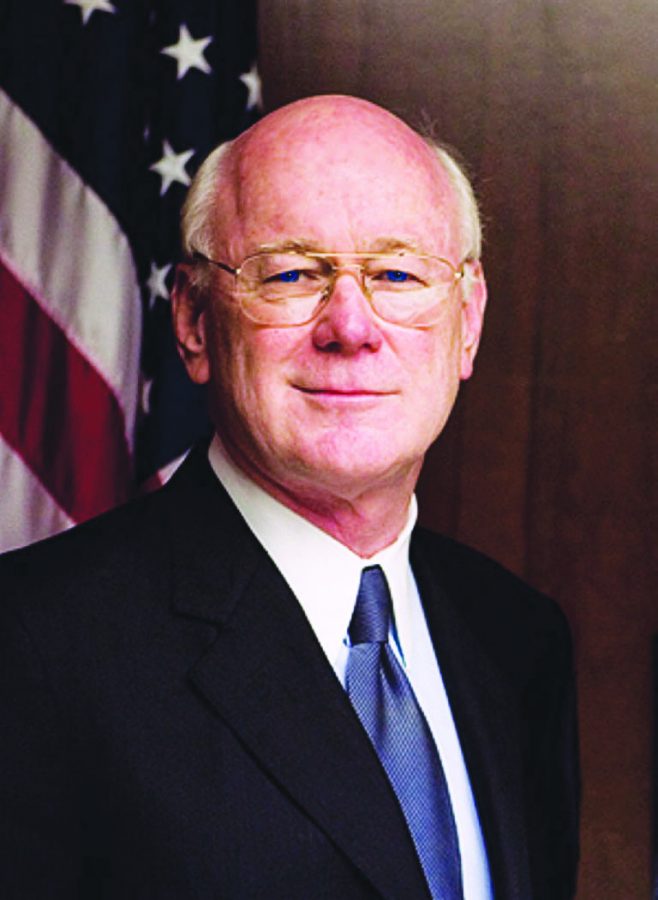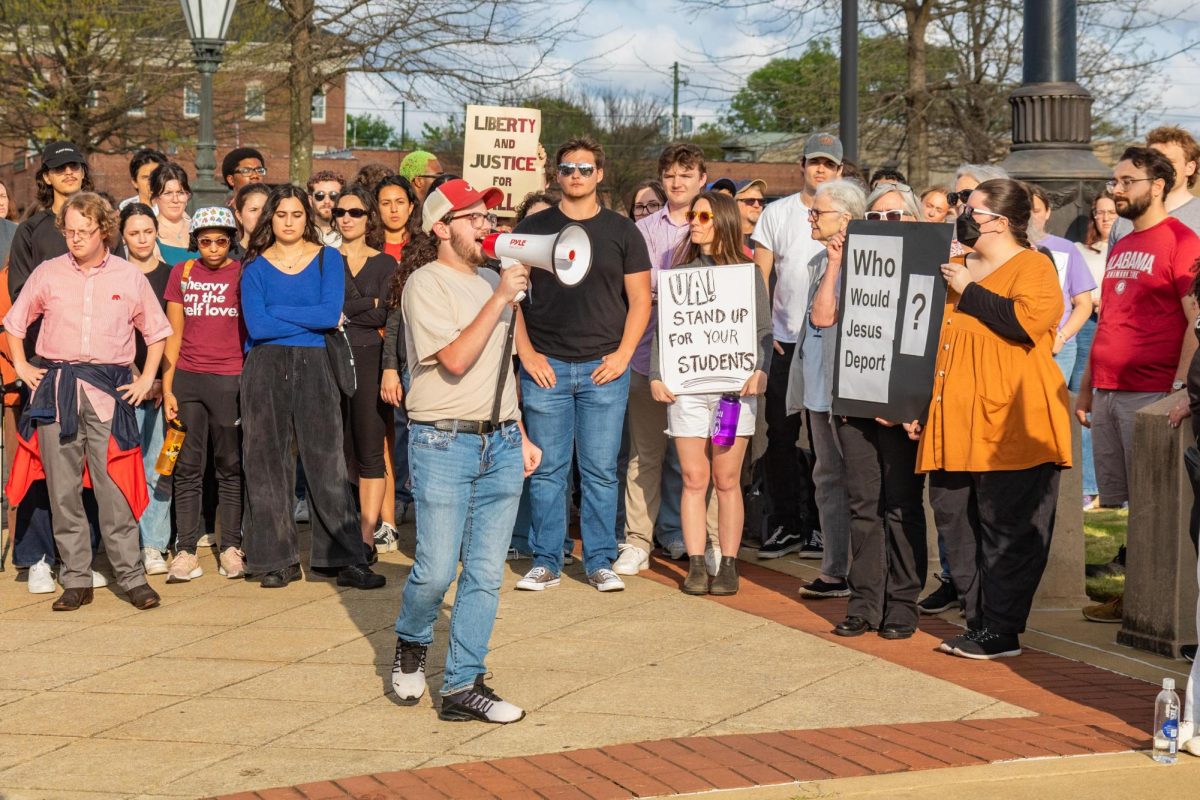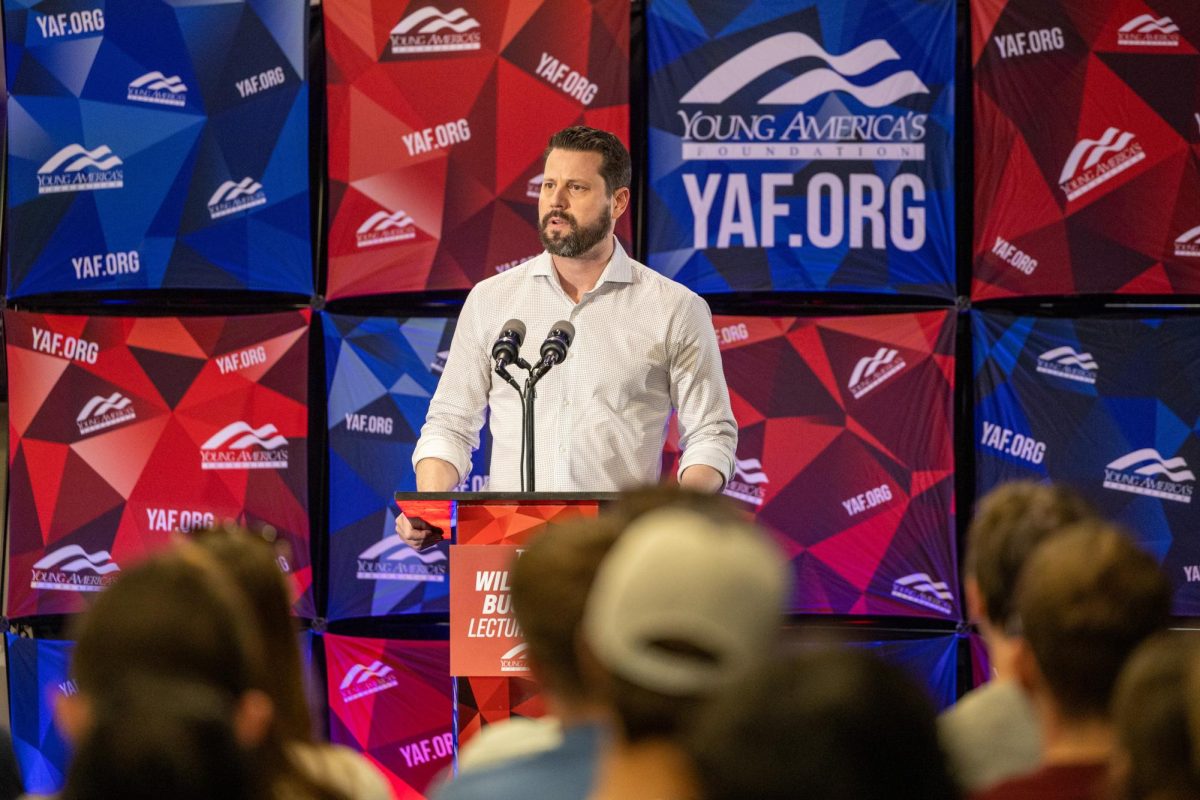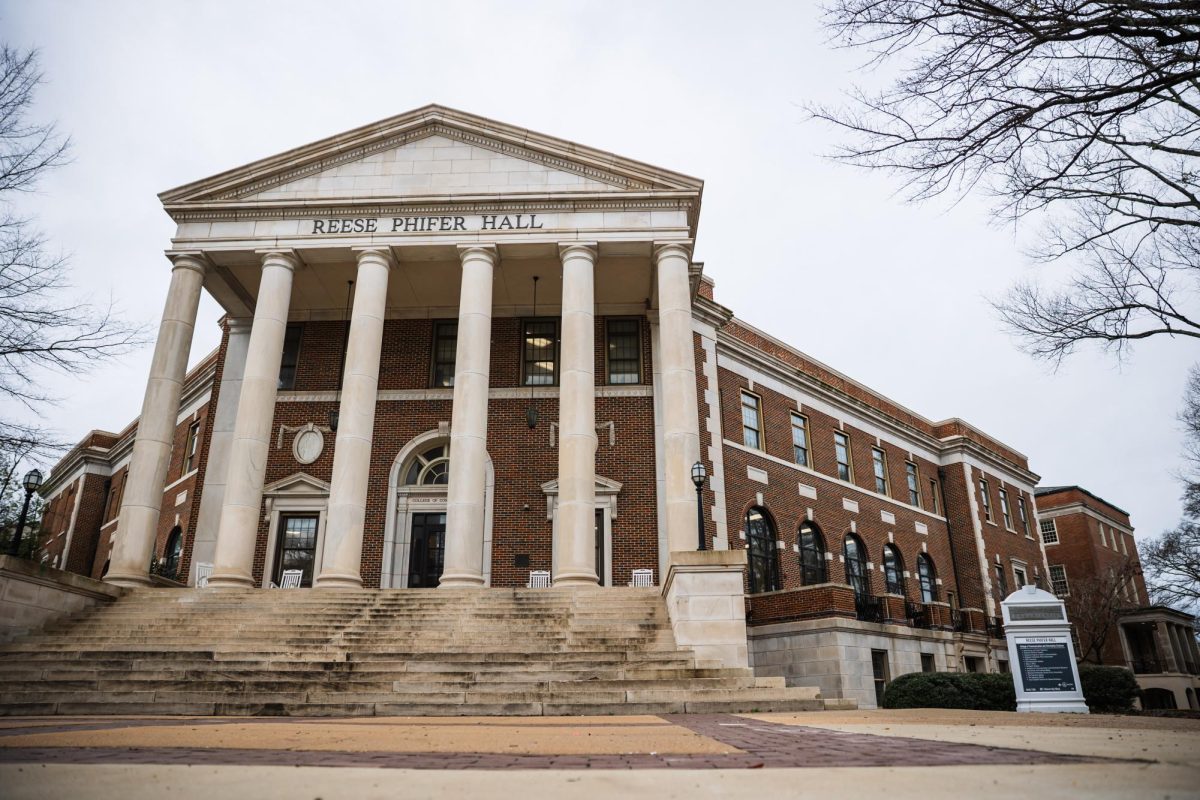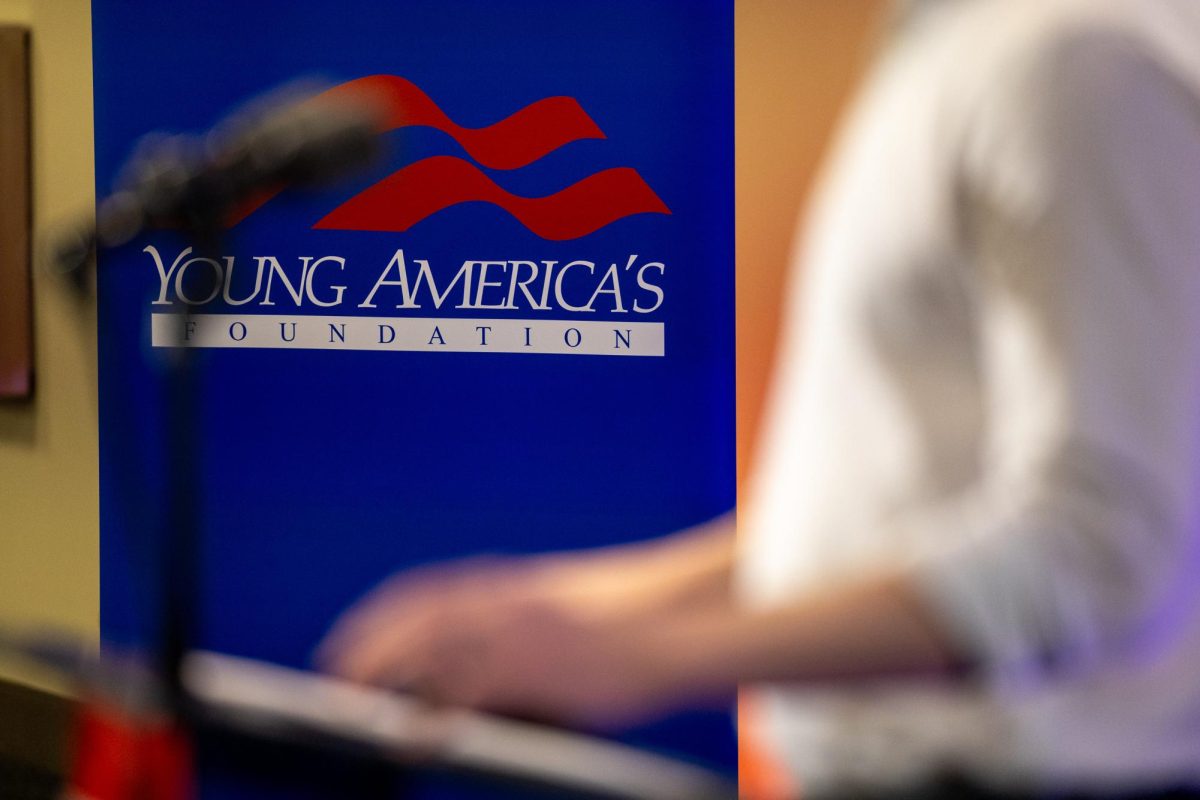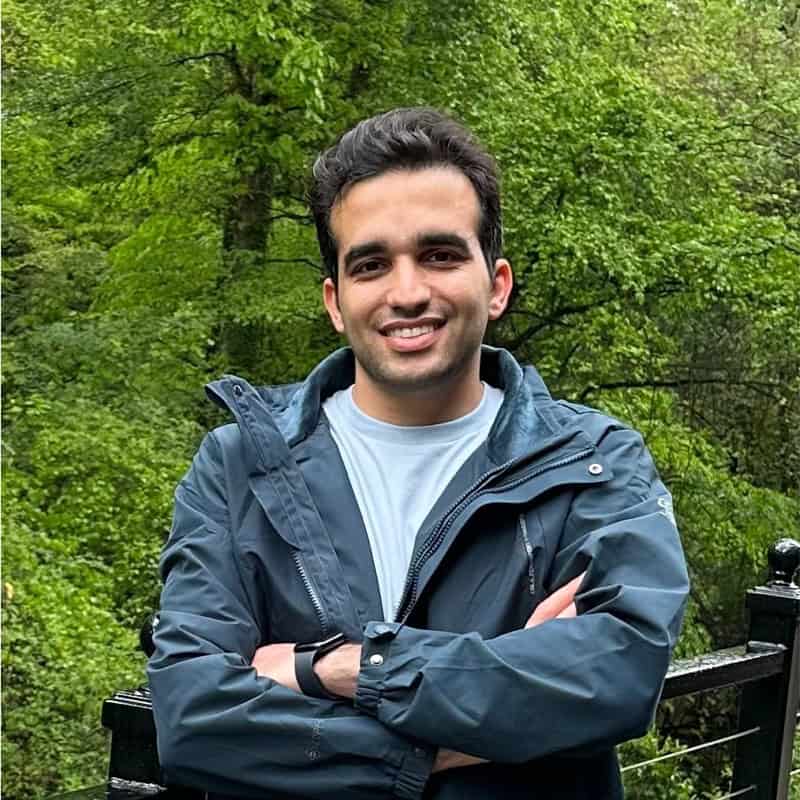The University of Alabama commemorated Constitution Day on Friday by hosting a lecture from federal judge Lynn Hughes. The speech, which was sponsored by the department of political science within the College of Arts and Sciences, was held in the Ferguson Center Theater and was well received by students and faculty.
Hughes, an Alabama graduate from 1963, has served as federal judge of the Southern District of Texas since 1985. The Houston native’s speech, “Our Unfinished Revolution,” focused on the undying responsibilities of Americans to uphold ideals of liberty and equality as prescribed by the U.S. Constitution.
Hughes’ speech was an official commemoration of Constitution Day, on behalf of the University of Alabama. Constitution Day, officially known as Constitution and Citizen Day, is a federal observance that recognizes the ratification of the U.S. Constitution on Sept. 17, 1787 and all U.S. citizens bound by it.
Before his official speech at 3 p.m., Judge Hughes spoke in front of a political science class taught by Joseph Smith in Mary Hewell Alston Hall. In the lecture, Hughes outlined the need for the division of powers outlined in the Constitution and spoke of the need of Americans to maintain accountability with their elected officials. The best method to maintain that accountability is through voting.
Bryant Hitson, a senior majoring in history, is a member of Smith’s political science class who attended the lecture on Friday.
“What was most important was the encouragement of the American voter,” Hitson said. “Our participation in government through voting keeps our interests at heart and prevents a certain kind of tyranny.”
Tyranny, in Hughes’ opinion, is the product of too much power in the hands of one person or group with an agenda. Corruption, according to Hughes, is thwarted in the Constitution through an intentionally slow legal process and division of national power.
“Power is like manure; if you pile it up, it stinks,” Hughes said, “but if you spread it around, it may do some good and grow something.”
Michael Grierson, a senior majoring in journalism, attended the speech and was most impressed by the hard-line view Hughes takes on the Constitution.
“He’s more Republican than most Republicans,” Grierson, said. “He’s concerned with what the law states, not his opinion. And because he’s a judge, he doesn’t have a constituency to please with every decision.”
The responsibility of the public to keep the ideals of national integrity and justice was the focal point of both lectures. Hughes, who spoke of the power of the Constitution, cited discipline as the main goal of a proper government and the responsibility of its citizenry.
“When we won the Revolution, we disciplined King George,” Hughes said. “But, when we drafted the Constitution, we disciplined ourselves.”



